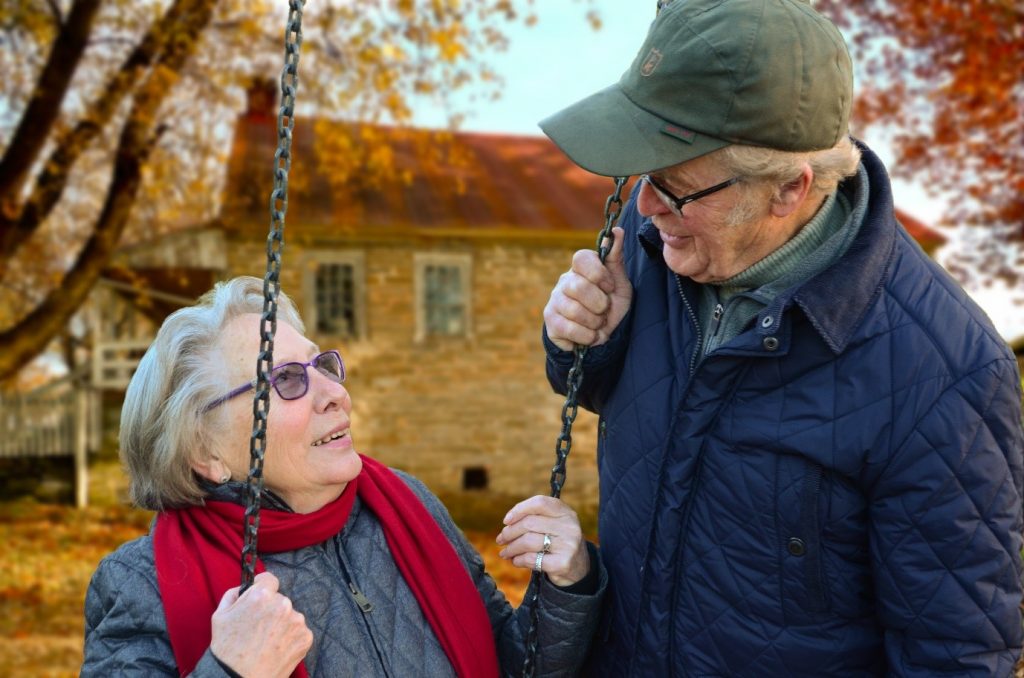5 tips for creating a dementia-friendly garden

Nicky Roeber is the Online Horticultural Expert at Wyevale Garden Centres. Here, he shares his top tips for creating a garden in which someone living with dementia can feel safe and happy.
There are currently more than 850,000 people with dementia in the UK, and that number is expected to rise above one million by 2025 (Alzheimer’s Society). While there is currently no cure for the condition, there are some ways in which we can help to soothe those that have it. For example, a study from Natural England found that engaging with nature and the great outdoors can benefit people living with dementia, as well as their carers. This means that, whether you have a care home for the elderly or one of your loved ones has the condition, creating a dementia-friendly outdoor space could be a great idea.
If this is something you’re interested in doing, here are my top tips for creating a space in which people with dementia will be able to get the most pleasure.
Take safety precautions
If you want your garden to be a safe haven for your relative or residents, it will help to design your outdoor space in a particular way. For example, keeping everything as level as possible can reduce the risk of anyone tripping and falling over. It’s also a good idea to keep short garden walls and any other obstacles to a minimum, as they can make it harder for elderly people — and especially those with dementia — to navigate the area.
If any steps are required, make sure you include a handrail that garden visitors will be able to hold on to for extra support. It’s also a good idea to ensure that any sets of steps in your outdoor space aren’t too steep, as this can also be a tripping hazard.
When choosing your garden’s flooring, consider opting for non-slip surfaces. Decking and some paving can get quite slippery when it rains so, instead, I would recommend going for specialist rubber flooring that will offer plenty of traction, whatever the weather. Certain versions are also specially designed to offer a softer landing if anyone does fall on them — this is quite a common problem among those with dementia.
Make sure it’s secure
Those with dementia can get confused quite easily, which means it can be dangerous for them to be out in public on their own. So, to prevent your loved one or residents from leaving your garden without you noticing, it’s a good idea to ensure your garden is secure.
Of course, tall fences and locked gates can look quite intimidating, which might be quite stressful for those with dementia. So, I would recommend covering your garden’s perimeters with climbing plants such as ivy. This will help them to blend in and allow your garden’s visitors to feel even closer to nature.
Offer plenty of seating options
Those with dementia tend to be quite elderly, which means they might struggle with mobility and won’t always have the energy to stroll around your garden. Plus, if you’ve taken the time to create a lovely outdoor space, you’ll want to give people the chance to enjoy it. So, I would recommend including a range of different seating options.
If you’ve created a focal point in your garden with a calming water feature or a beautiful display of blooms, why not place a bench in front of it? Or, if you would like to encourage your loved one or residents to enjoy more meals outside, you could add a few tables and chairs. As long as there are places to rest, your garden will be somewhere everyone can relax and enjoy.
Encourage wildlife
Being close to animals and other wildlife can also help to soothe those with dementia. So, I would recommend designing your garden in a way that’s going to encourage plenty of visits from the likes of birds, hedgehogs, frogs, and butterflies.
At Wyevale Garden Centres, we have a guide to creating a wildlife garden, which offers plenty of tips for this. it explains how everything from bushes and shrubs to water and even compost heaps can be used to attract animals and insects from the local area. So, it’s well worth a read if you think your garden’s currently lacking in that department.
Allow those with dementia to get involved
Natural England also found that one of the main reasons people with dementia engage in outdoor activities is that it helps to give them a sense of purpose. So, if possible, it’s a good idea to give your loved one or residents some jobs around the garden. For example, you could help them to grow their own veg, or they may be able help you get rid of weeds on a regular basis.
Of course, some accommodations will have to be made for this to be possible. For example, you will have to add raised flower beds or vegetable patches, as older people may struggle to work on the floor. Plus, it’s best to avoid giving them access to sharp tools, so you’ll want to keep this in mind when you’re decide what kinds of tasks they’ll be able to do.
Spending time outdoors can massively benefit those with dementia, but there are some steps you’ll have to take to keep your loved one or residents safe. But, by taking these tips on board, you’ll be well on your way to creating an outdoor space where everyone can feel safe and comfortable.
If you found this article useful, you may like to read:
If you’d like to receive more tips and shared experiences on caring for older family and friends, why not sign up for our newsletter?

